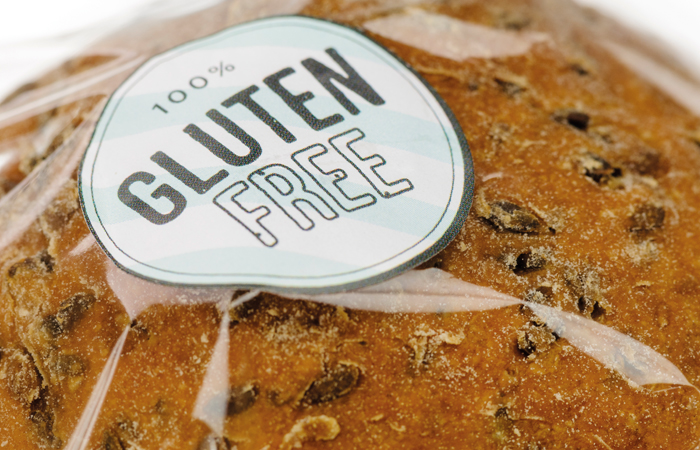Ins and outs of digestion
In Conditions
Follow this topic
Bookmark
Record learning outcomes
Digestive health problems are common for many people, so pharmacy teams have plenty of opportunities to help, as well as recognising some important red flags
Scientists have increasingly come to understand that digestive health is a cornerstone of our overall wellness, and research into the complexities of how the gut works has led to it being referred to as “the second brain”.

Clearly, it is a complex mechanism, so it is hardly surprising that a recent survey by the vitamins, minerals and supplements (VMS) company Alive found 61 per cent of respondents saying they suffer from digestive complaints and, of those, 65 per cent reported having to take time off work, cancel social plans or rest when their digestion played up.
“Unfortunately, digestive disorders are extremely common and affect all aspects of health including energy levels; mood; the health of hair, skin and nails; plus immunity”, says Suzie Sawyer, clinical nutritionist for Alive.
Stress and digestive problems
Everyone is living under an extra layer of stress thanks to the Covid-19 pandemic and this stress has a potential knock-on effect on the digestive system.
“Stress right now in the population will be huge so should never be overlooked with any illness”, says pharmacist and nutritional therapist Jacqueline Bradley. “The ability to respond appropriately to stress is important for normal physiology functions, but inappropriate responses to stress, or the inability to adapt to stress, triggers and worsens the symptoms of many gastrointestinal disorders.”
More specifically, Jacqueline adds that “short-term stress can lead to loss of appetite and slow digestion; medium-term stress can trigger constipation, diarrhoea or indigestion; and long-term can lead to more serious disorders such as IBS or IBD.”
As a starting point, Jacqueline’s advice is to “ask patients to be mindful of their eating habits and take time to fully digest their meals”.
The British Dietetic Association estimates as much as 20 per cent of the population experience some reactions to foods
Heartburn and indigestion
Even if customers are taking care of what they are putting into their gut, they can still experience a range of digestive health problems that often go hand-in-hand with other lifestyle choices or health issues. With the much-anticipated reward of a small family Christmas on the horizon for many, pharmacy teams won’t be surprised if they are asked for advice by customers who’ve overdone it a bit when it comes to food and drink.
Indigestion – or dyspepsia – is one of the most common results of overindulgence. Other lifestyle factors that might be contributing to digestive discomfort include being overweight, smoking, eating too fast or too late in the day, or taking certain medications.
Indigestion is caused when stomach acid breaks down the protective lining of the digestive system, due to incomplete digestion or delayed emptying of the stomach, causing irritation and swelling. Heartburn is similar and occurs when some of the stomach contents are forced back up into the oesophagus.
The good news is that unless there is a more serious underlying health problem, most indigestion and heartburn can be treated simply and effectively with lifestyle changes and over-the-counter (OTC) medicines. Cutting down on high-calorie, spicy or fatty foods, as well as alcohol and caffeinated or fizzy drinks is a good place to start. Pharmacy teams can advise customers to keep an eye out for particular food or drink that makes their symptoms worse, and avoid these.
Being overweight or a smoker is also something to address. If a pharmacy runs weight management or smoking cessation services, and a customer has expressed an interest in losing weight or quitting, then it might be appropriate to bring it to their attention.
If a customer requires a solution that’s a bit more instant, there are various treatments available. For example, fast relief after a short-term period of overindulgence can usually be dealt with using simple antacids that neutralise excess acid in the stomach, whereas more persistent indigestion may require something to stop the stomach producing so much acid in the first place. This is a good time to refer customers to the pharmacist, or suggest they talk to their GP, as many of the medicines for persistent indigestion need a prescription. In addition, persistent problems could indicate a more serious issue.
Pharmacy staff should also refer customers to the pharmacist if they want to use indigestion remedies and have liver or kidney problems, are pregnant or breastfeeding, are on a low-salt diet or are lactose intolerant.
Diarrhoea and constipation
Diarrhoea is common in adults, children and babies. Often caused by a stomach bug, it usually stops within a week and is simple to treat at home.
The most important thing is to ensure that those affected are drinking plenty of fluids to keep properly hydrated, taking small sips to avoid feeling sick. There is no need to avoid any specific foods, and taking paracetamol can deal with any discomfort, though customers should be reminded to check the leaflet before giving it to a child. If a customer is over five years of age and is showing signs of dehydration – such as dark, smelly urine – oral rehydration sachets can be recommended. Or they can talk to the pharmacist about medicines such as loperamide to stop diarrhoea for a few hours, providing they are over 12 years of age.
Diarrhoea can also present a symptom of long-Covid, which, according to Nisreen Alwan, associate professor in public health at the University of Southampton, can include “cough, breathlessness, chest heaviness and pressure, skin rashes, palpitations, fever, headache and diarrhoea”. If a customer knows or suspects they have had Covid-19 and is still struggling to feel better, pharmacy teams can recommend they talk to a GP for further help. The NHS has set up the ‘Your Covid Recovery’ website with information about how to manage ongoing symptoms and health needs at home, as well as signposting to further support. See: yourcovidrecovery.nhs.uk.
Constipation is another common condition, where the passage of waste through the bowels is slow, hard to expel and sometimes painful. The most common cause is not drinking enough fluid or eating enough fibre, but a lack of exercise, certain medications and illnesses can also have an impact.
Signs of constipation include abdominal discomfort, bloating, straining and a sensation that the bowels are never completely emptied. For those already suffering, the ï¬rst step is to up their fluid intake to at least seven to eight glasses a day, coupled with eating at least ï¬ve portions of fruit and veg, and more dietary fibre in the form of things like wholegrains and pulses.
While the occasional bout of constipation is quite normal, if a customer has experienced frequent or persistent constipation, pharmacy teams can recommend they see a GP for options such as stimulant laxatives, suppositories and enemas, or further investigation. They should also be referred immediately if they mention any other warning signs such as bleeding, alternating constipation and diarrhoea, mucus or blockage.

Diarrhoea can also present a symptom of long-Covid
Stomach cramps and bloating
There are lots of reasons someone may be experiencing stomach cramps or bloating, including constipation, diet and lifestyle choices already mentioned, and premenstrual syndrome (PMS).
Another common cause is food intolerance – also called food sensitivity – which happens when the body has problems digesting a food, or a substance within the food itself, such as lactose or wheat. The British Dietetic Association (BDA) estimates as much as 20 per cent of the population experience some reactions to foods, with digestive symptoms including abdominal pain, bloating, stomach cramps, diarrhoea and constipation. In order to determine which food or foods may be the cause, the BDA recommends that “appropriate tests” are performed by healthcare professionals in order to avoid unnecessary elimination diets, which it says “place individuals at risk of nutritional deficiencies”.
Stomach ache, constipation and bloating can often be attributed to irritable bowel syndrome (IBS), but for one in 100 people, they indicate coeliac disease, and persistent symptoms need to be checked out because bloating in women can be a rare sign of endometriosis or ovarian cancer.
All-important immunity
Good gut health also has an effect on immune health, so keeping a healthy gut microbiome – also known as gut flora – is especially important as people live through times of Covid-19.
“Probiotics can be really beneficial in both prevention and treatment of digestive disorders, although the medical profession don’t prescribe these as a matter of course,” says pharmacist and nutritional therapist Jacqueline Bradley.
The Lactobacillus and Bifidobacterial strains of probiotics may be familiar, and these are referred to as ‘resident’ probiotics. Suzie Sawyer, clinical nutritionist for Alive, says that the lesser known “transient strains also play an essential role”, with spore-forming probiotics shown to have “positive effects on inflammatory conditions of the gut, and in cases of constipation”.

Flatulence
Many people think that they have too much wind and flatulence, but the reassuring advice from digestive health charity Guts UK is that in an otherwise healthy person, these events are absolutely nothing to worry about. “The average person breaks wind up to 40 times a day, and anything less than this is normal”, says the charity. “However, if these events are severe, ongoing, troublesome, or if you are worried about them, you should discuss your concerns with your doctor.”
Causes of wind can include a high fibre diet; lactose intolerance; acid reflux or stomach ulcers; conditions such as Crohn’s disease, coeliac disease and other disorders that interfere with the small bowel’s absorption of nutrients; and taking a course of antibiotics.
Treatment usually involves diet and lifestyle changes, but Guts UK stresses that if bloating is persistent or associated with weight loss, abdominal pain or diarrhoea, individuals should be advised to see a GP as these can be symptoms of more serious bowel conditions. In addition, if they are experiencing burping in connection with chest discomfort, especially when associated with exertion, or if they have difficulties in swallowing, they should seek prompt medical advice.

Reassuring advice and support
Community pharmacy teams are under intense pressure during these challenging times, but spotting red flags, referring customers to the pharmacist and signposting to other support and organisations, continue to be a vital part of the pharmacy team’s role.
“We are experiencing more calls at Guts UK from people with possible red flag symptoms at the moment”, says Julie Thompson, the charity’s information manager. “For common digestive complaints, simple lifestyle advice can be provided by pharmacy teams, but it is very important that you are able to recognise ‘red flag’ digestive symptoms for common digestive conditions, particularly for people over the age of 55, and encourage them to contact their GP.”
Another common issue is that people often want quick relief for unpleasant digestive symptoms and can be embarrassed when shopping for digestive health products, so it’s important to talk to customers in a sensitive way. When someone is experiencing unpleasant symptoms, they need the reassurance of the right self care advice and support. This gives pharmacy staff yet another chance to help customers, and position their pharmacy as the accessible experts in healthcare that they are.
Could it be something serious?
According to the charity Pancreatic Cancer Action, the five-year survival rate for pancreatic cancer in the UK has risen to a record high of 7.9 per cent, up from three per cent 10 years ago. The survival rate is small, and the lowest of any of the 22 common cancers, but there is now a slow and positive trend upwards after almost 50 years of stalemate.
Pancreatic cancer is often diagnosed late because symptoms are vague, and may not appear until the disease is at an advanced stage. People often have to go back to their doctor with symptoms several times before they are referred for tests, which means they experience unnecessary delays in diagnosis and have to wait too long for their treatment to start.
Alongside this, there are very few effective treatment options for pancreatic cancer, and many people are too unwell when diagnosed to undergo treatment. Shockingly, nine out of 10 people with pancreatic cancer are diagnosed too late for surgery – the only treatment that can potentially cure the disease.
Pancreatic cancer symptoms include:
• Jaundice and/or very itchy skin
• Upper abdominal pain or discomfort which may radiate to the back
• Mid back pain or discomfort, roughly where a bra strap would sit, which may be eased by leaning forward
• Pale and smelly stools that don’t flush easily
• Loss of appetite
• Indigestion that doesn’t respond to medication
• Nausea and vomiting
• New onset diabetes not associated with weight gain
• Fatigue
• Unexplained weight loss.
Community pharmacy teams may think they have a limited role in cancer management, but their role is crucial in spotting the symptoms of pancreatic cancer in order to support early diagnosis and increase the chance of survival. For example, a pilot study of 33 pharmacies in northern England, highlighted by the charity Pancreatic Cancer UK, found that the common pancreatic cancer symptom of unresolved indigestion, was “the second most common cancer symptom that pharmacists referred for”.
Of course, even if customers are experiencing these symptoms, the cause is not always cancer, but pharmacy teams have an important part to play in advising them that if they have persistent or worsening symptoms that are not usual for them, they should see a GP or call NHS 111 for further help.
For more information about pancreatic cancer, see TM’s learning module in collaboration with Pancreatic Cancer Action.

